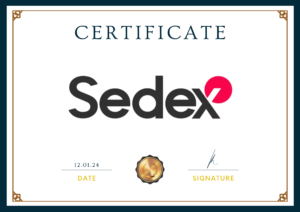ISO 9001 Certification: ISO Certification Meaning – All You Need to Know
In today’s competitive business environment, customer satisfaction is paramount. Companies worldwide strive to meet customer expectations and deliver high-quality products and services. One way businesses can demonstrate their commitment to quality and customer satisfaction is by obtaining ISO 9001 certification. ISO certification meaning is the verification of a company’s adherence to international standards for quality management, environmental management, or other specified criteria.
What is ISO 9001 Certification?

ISO 9001 is an internationally recognized standard for quality management systems (QMS). It provides a framework for organizations to establish, implement, maintain, and continually improve their quality management processes. ISO 9001 certification is not only a testament to a company’s dedication to quality but also a strategic tool for enhancing customer satisfaction.

Why is ISO Certification Important for Businesses ?
Understanding Customer Needs
ISO 9001 emphasizes the importance of understanding customer needs and expectations. By identifying and analyzing customer requirements, companies can tailor their products and services to meet these demands effectively. This customer-centric approach not only enhances customer satisfaction but also strengthens customer loyalty.
Consistent Product Quality
One of the key principles of ISO 9001 is a focus on consistent product quality. By implementing robust quality management processes, companies can ensure that their products meet predefined quality standards. This consistency in product quality instills confidence in customers and enhances their overall satisfaction with the brand.
Improved Communication
ISO 9001 promotes effective communication both within the organization and with external stakeholders, including customers. Clear and transparent communication helps ensure that customer requirements are understood and met. It also facilitates timely resolution of any issues or concerns, further enhancing customer satisfaction.
Continual Improvement
ISO 9001 encourages organizations to pursue continual improvement in their quality management systems. By regularly reviewing and evaluating their processes, companies can identify areas for enhancement and implement corrective actions. This commitment to continual improvement not only leads to better products and services but also demonstrates a dedication to meeting customer needs.

Benefits of ISO 9001 Certification for Customer Satisfaction
- Enhanced customer trust and loyalty: ISO 9001 certification demonstrates a company’s commitment to quality, leading to increased trust and loyalty among customers.
- Improved customer satisfaction: By focusing on customer needs and consistently delivering high-quality products and services, companies can enhance customer satisfaction.
- Competitive advantage: ISO 9001 certification can differentiate a company from its competitors, attracting more customers and enhancing its market position.
- Reduced customer complaints: Effective quality management processes can help companies identify and address issues before they escalate, leading to fewer customer complaints.
- Increased customer retention: Satisfied customers are more likely to repeat purchases and recommend the company to others, leading to increased customer retention.

Final Thoughts on the Importance of ISO Certification
In conclusion, certifications like ISO 9001 or ISO 14001 can significantly contribute to improving customer satisfaction. By adopting a customer-centric approach, maintaining consistent product quality, fostering effective communication, and pursuing continual improvement, organizations can enhance their reputation, build customer trust, and ultimately drive business success. ISO 9001 certification is not just about meeting a standard; it’s about exceeding customer expectations and setting a benchmark for excellence in quality management.
Additional Resources & Contact Information
For further reading on ISO certification in Pakistan, you may refer to the following resources:




Pingback: ISO 9001 vs ISO 14001: Pick the Right One for Your Business